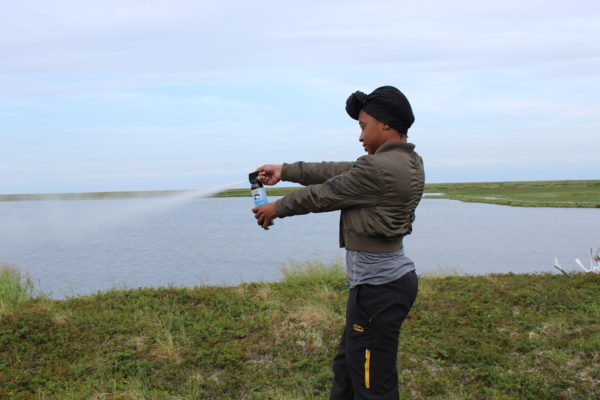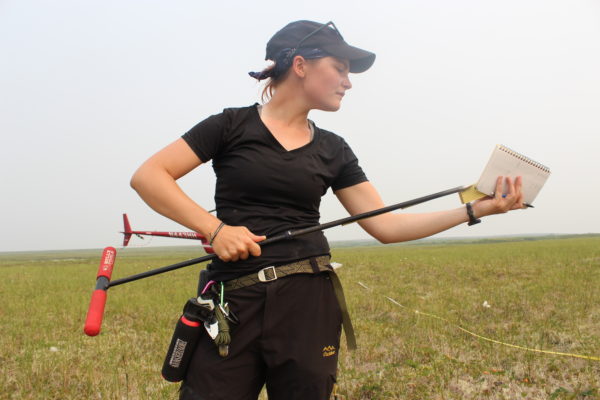Embarking on this trip, all of us students knew we were soon to design some kind of research project. Most of us were thinking about projects aimed at terrestrial, lake or stream systems. I wanted to try something different, though. I wanted to find some way to talk locals. Early on in the trip I overheard Sudeep talking about interviewing fisherman. With more investigation, I found out that with previous conservation work, he has gained significant experience interviewing locals in Ecuador, Bhutan, and Mongolia.
We started talking, and I explained my interest in doing interviews here. Together we designed some questions and I then constructed a survey outline. Since then, I’ve interviewed locals here at the station, whether summer employees, foreign researchers, or our culinary staff.
Today, I had my best interview yet. Guided by Marat (a staffed regular here at the station), I interviewed a local fisherman with the help of Valentin (the Russian prof here with us who also serves as my translator). Beforehand I was a little nervous. With little experience, interviewing a complete stranger through a translator is a rather intimidating endeavor. Lucky for me, however, my dice turned out. I soon found out that this fisherman—I’ll call him George—was an especially gregarious fellow. I had no trouble chatting, joking, and laughing with him all within a casual yet productive interview.
In the next week or two I hope to do more interviews with locals like George. It’s quite cool to hear personal accounts/experience of change here in the Arctic. I certainly hear perspectives that I probably wouldn’t hear in my Minnesota hometown. For that reason they’re very engaging and useful to me. These interviews are useful to the Polaris Project too because they reflect the general conception and understanding of climate change and may be useful for guiding our outreach efforts.
All in all, they’re good practice for my interviewing technique. It’s hard work navigating conversation casually while still maintaining some sense of direction and order for the survey. Maybe some day I’ll be an environmental anthropologist looking back at these didactic experiences…What fun!
Ta Ta for now.




Comments(2)-
-
Boyd Zapatka says
July 21, 2009 at 7:57 amI think this is a great concept and am glad someone decided to look at the local culture! Hope it works out, Brian!
Zoé Thouin-Rochester says
July 25, 2009 at 6:06 amThere is nothing like the human story to bridge the gap between the physical and environmental sciences and human understanding of climate change, something to which all individuals should be able to relate. What a wonderful approach to research!